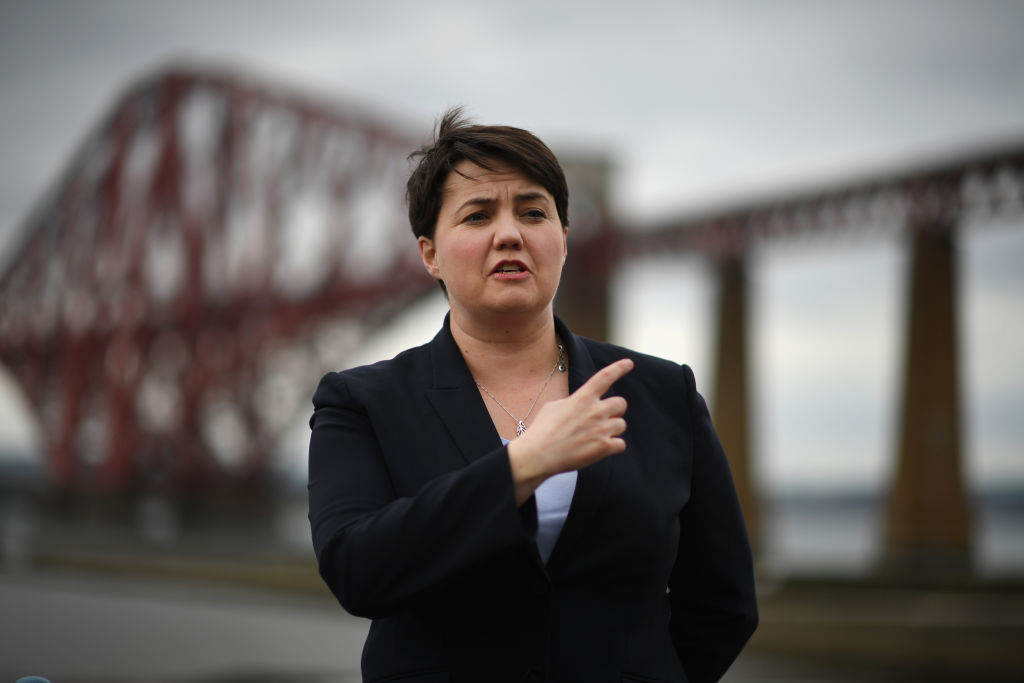As in 2017, the Prime Minister decided to spend some of her Easter break enjoying a walking holiday with her husband in Wales. It is very unlikely that this year’s mini-holiday will be followed by a similar decision as was last year’s: to hold an early general election. The failure of the Conservative campaign in that election, and the consequent shock loss of the party’s parliamentary majority, have dogged Theresa May’s government and party ever since.
Of course there is one part of the UK where the 2017 Tory election campaign was not a failure. In both England and Wales the Conservatives suffered a net loss of seats, rather than the sweeping gains that had appeared overwhelmingly likely in the days after the Prime Minister’s surprise announcement. But in Scotland it was all very different. There, the party gained twelve seats: giving them more than a single MP for the first time since 1992, and taking the Scottish Tories to their highest parliamentary representation since the Thatcherite high water-mark of 1983.
A big part of the reason for the different fate of the Scottish Conservatives appears to have been that their election campaign was not led by Theresa May. Rather than depending on the misfiring Maybot, Tories north of the border had their own champion. Front and centre of the campaign throughout was Ruth Davidson. Scotland had been rather slow to warm to the charms of the media-savvy figure who has led the Tories there since autumn 2011. In 2015, in the face of the SNP’s electoral tidal wave, Davidson presided over her party’s worst general election vote share on record – falling below fifteen per cent. But the following year, after a campaign which had played up Davidson and very much downplayed the Conservative brand, the Tories bounced back at the Scottish Parliament election: for the first time ever they came second at a devolved election, ahead of the once all-conquering Scottish Labour. Then, in 2017, Davidson led her party to a major advance in a Westminster election. It is little wonder that some have speculated about whether Davidson might at some point be brought south to lead the UK-wide party.
As in 2016, the route to a Scottish Conservative revival last year was a rigorous focus on opposing a second independence referendum. This positioning skilfully allowed the party not only to target those Scots – still, the polls suggest, a majority – who oppose independence; it also tapped into the weariness of a Scottish population that had, in barely three years, been asked to vote in two general elections, two major referendums, a Scottish parliament election, a European election and a full set of local elections. Many Scots had had their fill of politics, and instinctively recoiled from the prospect of more.
In the short-term, the success of Davidson’s approach has been self-evident. The Scottish Tories did not win the general election. Indeed, 2017 was still the SNP’s second-best ever Westminster result, and the Conservatives even now have little more than one-third the number of Scottish MPs as the nationalists. But the wind was well and truly taken out of the SNP’s sails. However, was this a tactical advance for the Scottish Tories made at a potential longer-term strategic cost?
Ruth Davidson’s approach has been to fight the SNP on the SNP’s turf, by making independence the central political issue. It may seem unfair to question this approach: it is, after all, just about the first thing the Scottish Tories have done in more than thirty years that has attracted significant voter support. The problem – for a party that believes in the union – is that the Conservatives have thereby tacitly accepted one of SNP’s core political assumptions: that Scotland is, or should be, a distinct and different political arena from that south of the border.
The 2017 general election was the second in a row, but also only the second ever, where different parties came first (in both votes and seats) in the UK’s four nations. But, as I document in my new book, less widely noticed was that the election in other ways saw a genuinely British party politics being further hollowed out. Northern Ireland has, of course, long been an electoral place apart. But 2017 saw those Ulster parties with strongest links to the main UK ones lose their last representation in the Commons. Wales witnessed a traditional Conservative election campaign, very much led by Theresa May. But after starting with high hopes of gains there, the Tories ended up losing three seats to a Labour campaign based almost exclusively on the Welsh Labour branding, a separate Welsh Labour manifesto, and the high-profile leadership of Welsh First Minister Carwyn Jones (with Jeremy Corbyn being near invisible in Labour campaign materials to the east of Offa’s Dyke). In Scotland, the campaign was almost wholly divorced from the political debate in England – with the Conservatives playing a leading role in helping to make that so.
Political unions are potentially fragile things: that is something that we, in the first member-state ever to vote to leave the European Union, should understand all too well. They become distinctly more fragile in the absence of a common political debate, and a common set of choices at elections, to draw people together into a shared sense of political community. No one doubts the desire of Ruth Davidson and her party to defend the union. But may they, unwittingly, be helping to undermine it?






Comments